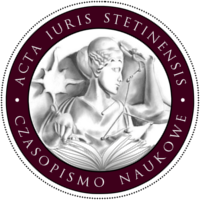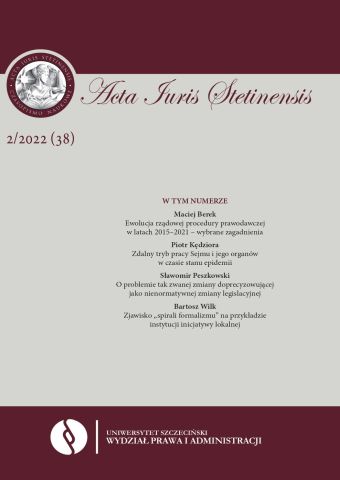







| Authors: |
Wiktor
Gnych-Pietrzak

Uniwersytet Szczeciński |
| Keywords: | legal interpretation residency relief tax law in dubio pro tributario |
| Data publikacji całości: | 2022 |
| Page range: | 16 (93-108) |
| Downloads ?: | 216 |
| 1. | Bartosiewicz A., Kubacki R., PIT. Komentarz, Warszawa 2009. |
| 2. | Chudzik M., Podatek dochodowy od osób fizycznych. Komentarz do zmian wprowadzonych ustawą z dnia 6 listopada 2008 r. o zmianie ustawy o podatku dochodowym od osób fizycznych, ustawy o podatku dochodowym od osób prawnych oraz niektórych innych ustaw, LEX/el 2009, sip.lex.pl. |
| 3. | Jędrejek G., Wykładnia przepisów prawa cywilnego, Warszawa 2020. |
| 4. | Malec A., Zarys teorii definicji prawniczej, Warszawa 2000. |
| 5. | Mariański A., Rozstrzyganie wątpliwości na korzyść podatnika (1), „Przegląd Podatkowy” 2009, nr 8. |
| 6. | Mariański A., Rozstrzyganie wątpliwości na korzyść podatnika. Zasada prawa podatkowego, Warszawa 2011. |
| 7. | Mariański A., Zasada in dubio pro tributario w orzecznictwie Trybunału Konstytucyjnego, w: Z. Ofiarski (red.), XXV lat przeobrażeń w prawie finansowym i prawie podatkowym – ocena dokonań i wnioski na przyszłość, Szczecin 2014. |
| 8. | Wróblewski J., Rozumienie prawa i jego wykładnia, Wrocław 1990. |
| 9. | Zieliński M., Bogucki O., Choduń A., Czepita S., Kanarek B., Municzewski A., Zintegrowanie polskich koncepcji wykładni prawa, „Ruch Prawniczy, Ekonomiczny i Socjologiczny” 2009, nr 4. |
| 10. | Zieliński M., Wykładnia prawa. Zasady – reguły – wskazówki, Warszawa 2017. |
| 11. | Zieliński M., Wyznaczniki reguł wykładni prawa, „Ruch Prawniczy, Ekonomiczny i Socjologiczny” 1998, nr 3–4. |